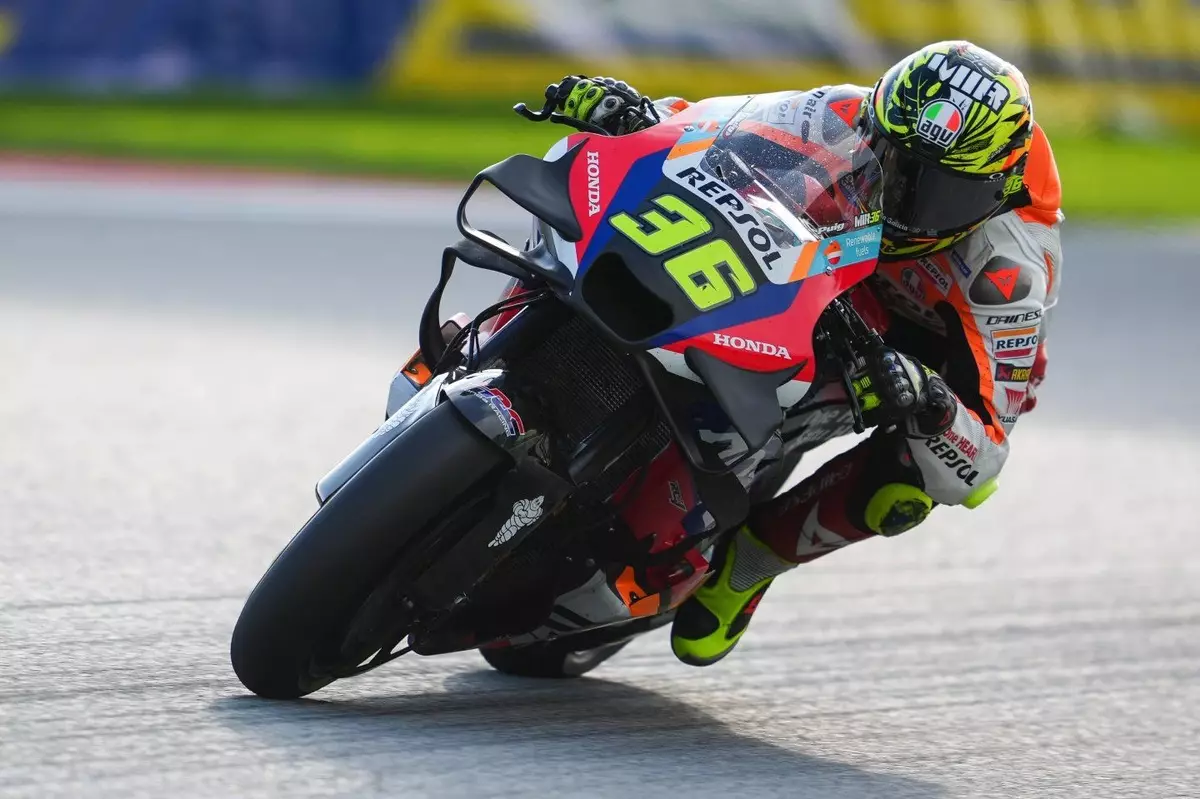In the world of MotoGP, performance is king, and for manufacturers like Honda and Yamaha, maintaining competitive stature against European giants is vital. As Honda struggled through the 2023 MotoGP season, many looked to the revised concession system implemented in 2024 as a beacon of hope. This adjustment aimed to provide Honda and Yamaha with the tools needed to bridge the performance gap that had widened in recent years. However, as factory rider Joan Mir expressed, these measures have not yielded significant improvements, raising questions about their effectiveness and future strategies.
The revamped concession system granted Honda more freedom to innovate and test new developments, including the introduction of different engine specifications. With notable riders like Joan Mir and Luca Marini being allowed to partake in private testing sessions, the expectation was that Honda would leverage these advantages to enhance their competitiveness on the grid. Yet, despite these adjustments, Honda found itself at the bottom of the manufacturer standings, finishing with a disappointing 75 points—less than half of the 185 points earned the previous year when the illustrious Marc Marquez was part of the team.
Joan Mir’s candid reflections on the situation reveal an underlying frustration among the riders. He candidly stated that, in his opinion, without the benefit of concessions, Honda would have found itself in the same position as it currently occupies. This sentiment underscores a deeper concern: is the concession system merely a temporary fix, or does it lack the depth required to effect meaningful change? Despite the initial hope, Mir’s comments indicate a troubling stagnation within the team, suggesting that the existing strategies may not be yielding the intended results.
Importantly, Mir highlighted that the pressure to manage an increasingly hectic schedule, compounded by additional testing duties, has raised doubts about the genuine benefits of extensive testing. According to him, the frequent transitions between test sessions and race weekends may be counterproductive. The psychological strain of such a rigorous schedule can hinder a rider’s performance rather than enhancing it, a concept that requires serious consideration when assessing team dynamics and performance.
The necessity of having a dedicated test team becomes increasingly clear when evaluating Honda’s struggles. Mir pointed out that the responsibility of optimizing the bike should not solely rest on the shoulders of race riders. A robust test team, which Honda has recently expanded for 2025, plays a crucial role in developing effective components for the race machines. The addition of experienced riders like Aleix Espargaro signifies a strategic commitment to improving the racing package. However, the efficacy of this new structure will depend heavily on how well the test team harmonizes with the primary racing squad.
Mir’s comments regarding the test team encapsulate a common frustration among riders. A perceived inadequacy in the size and capabilities of the current test team had previously hindered Honda’s ability to gather and implement effective feedback. As Honda shifts its focus towards creating a more efficient testing operation, Mir remains cautiously optimistic that the combination of strategic changes and the concession revisions will eventually yield positive results.
Looking ahead, Honda faces critical decisions that will shape its trajectory in the upcoming MotoGP seasons. The current results, characterized by disappointment and stagnation, prompt a reevaluation of strategies to facilitate genuine progress. As Mir articulated, simply having concessions and more testing opportunities does not equate to immediate success. The focus must now pivot towards diligently identifying and integrating high-performance components that genuinely enhance speed and reliability on the track.
The upcoming years will be pivotal for Honda as they endeavor to reclaim their competitive edge in a fiercely contested landscape of MotoGP. Continuous evaluation, effective testing, and innovative strategies will be essential for revitalizing a brand that, despite its rich heritage, finds itself in dire need of revitalization. The fans, the team, and the broader MotoGP community will keenly watch to see if Honda can harness the lessons learned from this tumultuous period to forge a path back to the forefront of motorcycle racing.


Leave a Reply